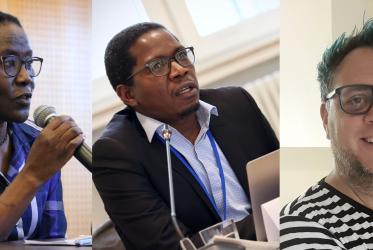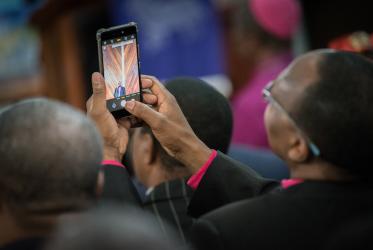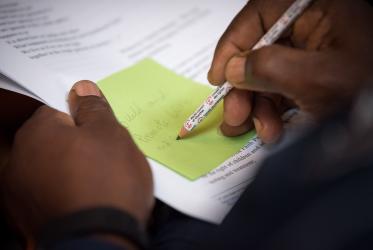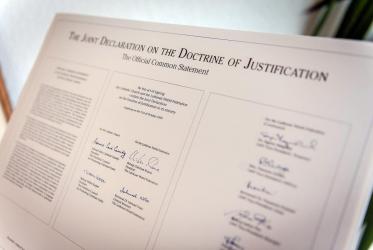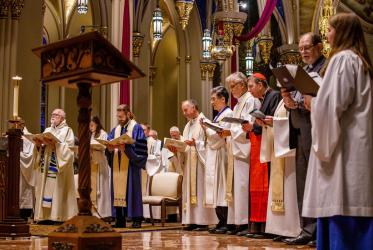Displaying 1 - 20 of 67
Promoting human dignity through art
06 September 2022
Women with disabilities want to belong in churches
31 August 2022
In a COVID-stricken world, “everyone is important”
23 October 2020
WCC staff, planning together, nurture spirit of one humanity
08 October 2020
Advancing a disability-inclusive response to COVID-19
21 April 2020





